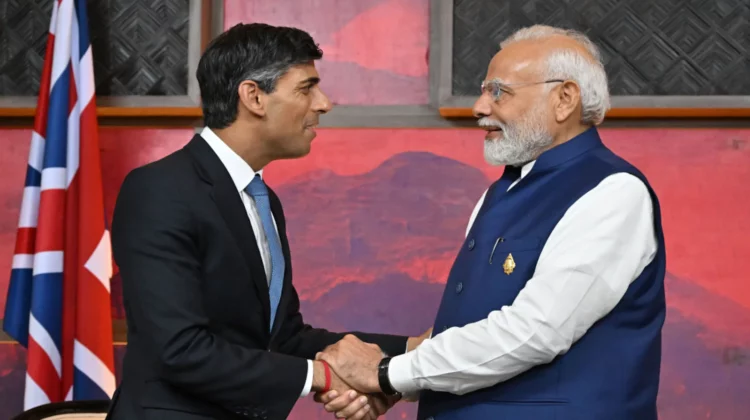
PMO likely to review and adopt 100-day agenda for next government this month including FTAs with UK and Oman
NEW DELHI : The Prime Minister’s Office (PMO) is likely to review and adopt a 100-day agenda later this month for the next government, which is being piloted by India’s think-tank NITI Aayog, a senior government official said.
“The senior bureaucrats of ministries, including commerce, finance, labour are holding relevant discussions with officials in PMO and NITI Aayog. After the discussions, the 100-day agenda will be submitted to the PMO for review,” the official told.
Sure of a win in the upcoming general elections, the PM Sri Narendra Modi led government is pulling out all the stops to prepare for its third term beforehand.
“The PMO will finally review and adopt the 100-day agenda, which is likely to be this month,” he said.
While Punya Salila Srivastava, Additional secretary to PM, is holding discussions with the ministries of Education, Health and Family Welfare, Skill Development and Entrepreneurship, Women and Child Development, Arvind Shrivastava, Additional Secretary to the PM, is deliberating with the ministries of Commerce, Finance and Corporate Affairs, Labour, Heavy Industries and Textiles. Hari Ranjan Rao, Additional Secretary to the PM, is holding discussions with the ministries of Electronics & IT, Science and Technology while Atish Chandra, Additional Secretary to the PM, is involved with the ministries of Agriculture, Fertilisers, Food Processing Industries and Consumer Affairs, Food and Public Distribution.
India’s think-tank NITI Aayog, which was set up in 2015, has asked all the ministries to give their 100-day agenda for the next government, within a framework with certain categories, including policy initiatives and implementation issues, the official said.
“The think-tank is piloting the entire agenda setting for the new government,” the official told.
Tentative 100-day agenda
FTAs : The proposed Free trade Agreements with the United Kingdom (UK) and Oman may feature in the Centre’s 100-day agenda as talks on most of the chapters have been concluded.
E-commerce policy: The government’s 100-day agenda may include addressing the long-pending e-commerce policy as a lot of things have already been threshed out at the officials’ level. The policy will help balance the interests of small businesses, e-commerce platforms, consumers and broader economic policy objectives.
Labour codes: The notification on labour codes could be a part of the 100-day agenda though MSME organisations plan to give a representation for further discussions on it. The Industrial Relations Code, Code on Social Security, and Occupational Safety, Health and Working Conditions Code were passed during the Monsoon Session of Parliament in 2020. In the Monsoon Session of 2019, the Code on Wages had been passed. But the rules necessary for their implementation have not been formulated or notified since then.
Source : Moneycontrol

